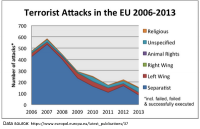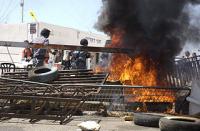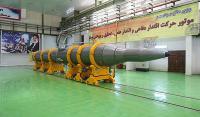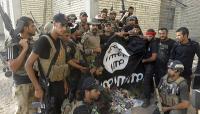-
Oregon siege: the U.S. militia movement is resurgent – and evolving
For several days now, a small group of armed men have occupied an office of the National Wildlife Refuge in southeastern Oregon, 300 miles from Portland. There is of course a long history of distrust towards the federal government in America, one of which the militias of recent decades are acutely aware. Drawing on anti-Communist organizations of the 1950s and the paranoia of the Cold War, militia culture grew towards a fever pitch in the 1980s and 1990s. The popularity of this newly radicalized “paranoid style,” however, came to a sudden halt on the second anniversary of the burning of the Waco compound (April 1993), when Timothy McVeigh and Terry Nichols bombed a federal building in Oklahoma City in what was then the most significant terrorist incident in American history, killing 168 people. The new coalition of anti-government activists, as represented by the people who seized the buildings in Oregon, is broad and ideologically diverse, and its principal spokesmen explicitly repudiate racism. Some of its leaders promote the goal of a theocratic society: The invasion of the wildlife sanctuary may also demonstrate the power of social media to do for American militia culture what Facebook and Twitter contributed to the Arab Spring.
-
-
Obama to end background-checks exemptions of gun shows, online gun sales

President Barack Obama will today announce a series of executive actions aiming to close loopholes in the current system of background checks of gun buyers. The executive actions say it will focus on tightening the definition of those “engaged in the business” of selling weapons. Such tightening would deny online vendors and gun shows – where about 40 percent of all gun are purchased — exemptions from conducting background checks for gun buyers. Criminals and mentally ill people can now purchase guns through gun sellers who exploit the “engaged in business” loophole which was originally designed for hobbyists and personal sales.
-
-
Israeli Jewish passengers demand removal of Arab Israeli passengers from flight

Israeli Jewish passengers on an Aegean Airlines flight from Athens to Israel had asked Greek security officials to remove two Arab Israeli passengers from the airplane because these two passengers looked “suspicious.” The police was called to examine the two Arab Israelis’ papers and luggage, and check their names against European terrorist watch-list. The police found nothing unusual, but the Jewish Israeli passengers insisted on the removal of the two Arab Israelis, and the two accepted the captain’s offer to stay one more night in Athens at Aegean Airline’s expense.
-
-
Sunni states cut Iran ties; Syrian regime uses sarin gas; ISIS’s Libyan oil terminal; European borders closing

Bahrain, Kuwait, and Sudan cut their ties with Iran, while the UAE downgraded its relations; a UN fact-finding mission has found evidence for the use sarin gas in Syria; ISIS launched a coordinated gun and suicide car bomb attack on the Sidra oil port on Libya’s Mediterranean coast.; Denmark and Sweden reintroduced border controls in an effort to stem the wave of refugees trying to enter the two countries.
-
-
Terror threats, attacks are the new normal for Europe: Experts

Following the 13 November attacks in Paris, terrorism analysts in the United Kingdom and Europe say the continent’s intelligence and security services have accepted the reality that ISIS appears not only to have the intention to continue to attack targets in Europe, but also the capability professionally to plan and execute such attacks.
-
-
Jewish extremists indicted in Israel for killing Palestinian family in arson attack

Israel has indicted two Jewish extremists for killing three members of a Palestinian family and seriously injuring a fourth in an arson attack on a home in the Palestinian village of Duma in the West Bank. The attack also prompted the Israeli security services to begin to pay more attention to, and take action against, a small but growing group of violent Jewish religious fanatics, many of them living in illegal settlements in the Palestinian territories. These fanatics call not only for the expulsion of all Muslims and Christians from Israel, but also for the dismantling of Israeli democracy and the installation of a king of would rule over a Jewish kingdom run according to Old Testament laws.
-
-
Refugees in Germany; Swedish border checks; ISIS’s British medics; U.K. flood defenses

German economist says Germany should expect a tough competition between refugees and poorer Germans; Sweden, as of midnight Sunday, began to impose strict identity checks of all travelers from Denmark; a British delegation, including an imam from London, has traveled to Sudan to try to dissuade young British doctors from joining ISIS; as parts of the United Kingdom braced themselves for more misery, the government’s storm-related actions are criticized.
-
-
2 killed, 8 injured in terrorist attack in Tel Aviv
Three hours ago a gunman shot and killed two people and injured eight – four of them seriously – at the center of Tel Aviv. Hundreds of police officers, using drones and sniffing dogs, have been searching for the gunman. Half an hour or so after the shooting, an abandoned taxi was found on the outskirts of Tel Aviv, with blood on the front seat and dashboard. It is not yet known whether there is a connection between the shooting and the abandoned taxi. The immediate suspicion among Israeli security experts is that the shooting is related to the recent surge in attacks by Palestinians on Israeli citizens. Most of these attacks were perpetrated by knife-wielding youths, so the use of an automatic weapon at the center of Tel Aviv should be regarded as an escalation of the campaign.
-
-
U.S. to impose new sanctions on Iran over ballistic missile program

The United States is preparing a new round of economic sanctions against Iran after Iran had violated agreements related to its ballistic missile program by testing, on 10 October, an advanced version of one of its missiles. The ballistic missile agreement is unrelated to the nuclear agreement the P5+1 powers signed with Iran last summer. The nuclear program-related sanctions would begin to be lifted in 2016 if Iran fully complies with the requirements of the nuclear deal.
-
-
Israel concerned about ISIS-affiliated groups in Syria attacking Israel

Israel security officials worry about the possibility that Shuhada al-Yarmuc, a small , ISIS-affiliated Jihadi organization operating in the southern area of the Syrian Golan Heights, would, in line with the emerging ISIS strategy of staging spectacular attacks in Western countries, try something similar in Israel.
-
-
Rail safety delays; Chicago’s trigger-happy police; killing Bangladeshi bloggers

In October the Congress agreed to extend the deadline for installing the systems to 2018, but earlier this month Congress extended the deadline for deploying speed-control systems yet again, this time until the end of 2020; By June 2016, all Chicago police officers will be equipped with non-lethal Tasers. The move is part of a plan by city authorities to curb the sharp rise in the number of people – all of them African Americans — killed by police shooting; in 2015 alone, at least four pro-democracy bloggers and a publisher were murdered while others went into hiding, or fled abroad, prompting widespread calls for protection of free speech in Bangladesh from the threat of radical Islamists.
-
-
Examining how ISIS’s martyrdom appeals affect the brains of potential recruits
Understanding the reasons why young people are susceptible to recruitment by violent extremist organizations like the ISIS is a formidable undertaking requiring a multidisciplinary approach. An ambitious U Chicago research — the Social and Neurological Construction of Martyrdom Project – will use functional magnetic resonance imaging (fMRI) to investigate the neural pathways through which martyrdom appeals evoke sympathy in the viewer. They aim to uncover exactly what is happening in the brain when an individual is persuaded to change their beliefs. Until now, there has not been a method to study whether it is a message’s intellectual content or emotional impact that resonates with a viewer. By using fMRI, researchers can see what areas of the brain “light up” when specific messages are heard. The project has been awarded $3.4 million by the Defense Department’s Minerva Research Initiative.
-
-
Majority of Americans believe it is sometimes necessary for govt. to sacrifice freedoms
Survey conducted after the Paris and San Bernardino attacks finds a majority of respondents from both parties think it is acceptable for the government to analyze the Internet activities and communications of American citizens without a warrant.
-
-
Study links insurgency phase of Iraq War to higher PTSD rates

Guerilla tactics such as suicide attacks and roadside bombs may trigger more posttraumatic stress than conventional warfare, suggests a Veterans Affairs study of 738 men and women who served in Iraq. The study found that among the men — about half the overall group — the insurgency-phase veterans were more than twice as likely to have a diagnosis of PTSD, compared with those who served in either of the other two phases.
-
-
NSA kept Benjamin Netanyahu under surveillance during Iran negotiations

As part of the effort by the Obama administration earlier this year to make sure that the negotiations between the P5+1 powers and Iran over the latter’s nuclear program would not be derailed or obstructed, the National Security Agency (NSA) kept a close watch on Israel’s prime minister Benjamin Netanyahu. The agency collected intelligence on Netanyahu and other Israeli leaders in an attempt to learn what moves the Israeli leader was planning as part of his campaign to have Congress reject the agreement the United States was negotiating.
-
More headlines
The long view
Factories First: Winning the Drone War Before It Starts
Wars are won by factories before they are won on the battlefield,Martin C. Feldmann writes, noting that the United States lacks the manufacturing depth for the coming drone age. Rectifying this situation “will take far more than procurement tweaks,” Feldmann writes. “It demands a national-level, wartime-scale industrial mobilization.”
No Nation Is an Island: The Dangers of Modern U.S. Isolationism
The resurgence of isolationist sentiment in American politics is understandable but misguided. While the desire to refocus on domestic renewal is justified, retreating from the world will not bring the security, prosperity, or sovereignty that its proponents promise. On the contrary, it invites instability, diminishes U.S. influence, and erodes the democratic order the U.S. helped forge.
Fragmented by Design: USAID’s Dismantling and the Future of American Foreign Aid
The Trump administration launched an aggressive restructuring of U.S. foreign aid, effectively dismantling the United States Agency for International Development (USAID). The humanitarian and geopolitical fallout of the demise of USAID includes shuttered clinics, destroyed food aid, and China’s growing influence in the global south. This new era of American soft power will determine how, and whether, the U.S. continues to lead in global development.
Water Wars: A Historic Agreement Between Mexico and US Is Ramping Up Border Tension
As climate change drives rising temperatures and changes in rainfall, Mexico and the US are in the middle of a conflict over water, putting an additional strain on their relationship. Partly due to constant droughts, Mexico has struggled to maintain its water deliveries for much of the last 25 years, deliveries to which it is obligated by a 1944 water-sharing agreement between the two countries.
How Disastrous Was the Trump-Putin Meeting?
In Alaska, Trump got played by Putin. Therefore, Steven Pifer writes, the European leaders and Zelensky have to “diplomatically offer suggestions to walk Trump back from a position that he does not appear to understand would be bad for Ukraine, bad for Europe, and bad for American interests. And they have to do so without setting off an explosion that could disrupt U.S.-Ukrainian and U.S.-European relations—all to the delight of Putin and the Kremlin.”
How Male Grievance Fuels Radicalization and Extremist Violence
Social extremism is evolving in reach and form. While traditional racial supremacy ideologies remain, contemporary movements are now often fueled by something more personal and emotionally resonant: male grievance.
